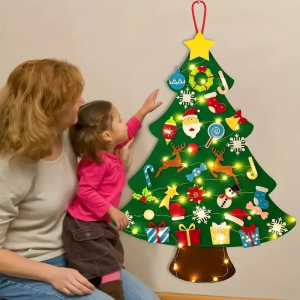In recent years, there has been a significant shift towards more natural and educational toys in the realm of childhood play. Among the most popular options are Montessori wooden toys, which are designed to engage children in a hands-on, exploratory manner. Rooted in the principles of Montessori education, these toys offer more than just entertainment—they promote learning, creativity, and developmental skills. In this blog, we will explore the benefits of Montessori wooden toys and why they are a fantastic choice for parents.
1. Promoting Sensory Exploration
Montessori wooden toys are often made from natural materials, providing children with a rich sensory experience. The smooth texture of wood, the weight of the toys, and the natural colors appeal to a child’s senses. Engaging with these materials helps develop fine motor skills and hand-eye coordination, essential for future tasks such as writing and self-care.
2. Encouraging Creativity and Imagination
One of the core tenets of the Montessori method is to foster creativity and imagination in children. Wooden toys are often designed in a way that allows for open-ended play. For instance, a simple wooden block can be used for building, sorting, or even as a pretend cooking tool. This flexibility encourages children to think critically and explore their ideas, enhancing their problem-solving skills.
3. Durability and Longevity
Unlike plastic toys, which can easily break or wear out, Montessori wooden toys are built to last. Made from high-quality materials, these toys can withstand rough play and are often passed down through generations. Investing in durable toys not only saves money in the long run but also reduces waste, making them an environmentally friendly choice.
4. Fostering Independence
Montessori education emphasizes the importance of independence in children. Wooden toys often come without complex mechanisms or flashy features, allowing children to engage with them on their terms. This autonomy helps children develop confidence and a sense of achievement as they explore and master their toys independently.
5. Supporting Cognitive Development
Many Montessori wooden toys are designed to enhance cognitive skills such as counting, sorting, and problem-solving. For example, toys like stacking rings or shape sorters encourage children to identify patterns and develop logical thinking. These activities stimulate brain development and lay the groundwork for more complex learning in the future.
6. Safe and Non-Toxic Materials
Parents today are increasingly concerned about the safety of the toys their children play with. Montessori wooden toys are typically made from natural, non-toxic materials, free from harmful chemicals and toxins found in many plastic toys. This makes them a safe choice for children who are prone to putting toys in their mouths.
7. Building Social Skills
Montessori wooden toys are often designed for cooperative play, allowing multiple children to engage together. This encourages teamwork, communication, and social skills as children learn to share and collaborate on projects. Playing with others fosters emotional intelligence and helps children navigate social situations.
Conclusion
Montessori wooden toys are more than just playthings; they are tools that support holistic child development. By promoting sensory exploration, creativity, independence, and cognitive skills, these toys align perfectly with the Montessori philosophy. As parents, choosing wooden toys can create a nurturing and enriching environment for your child, setting them on a path toward lifelong learning and curiosity. So, the next time you’re looking for the perfect gift or educational tool, consider investing in the timeless charm and benefits of Montessori wooden toys.





